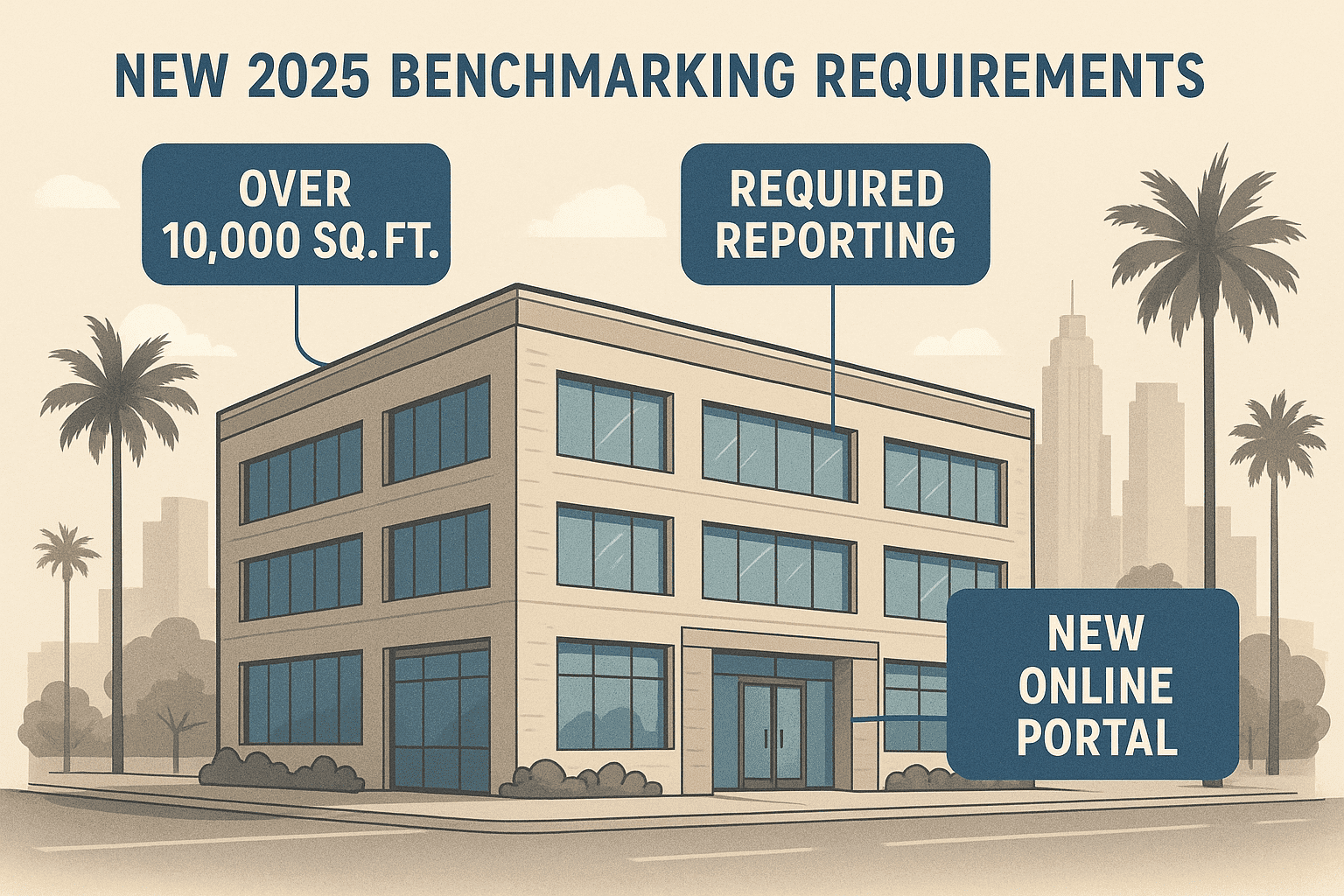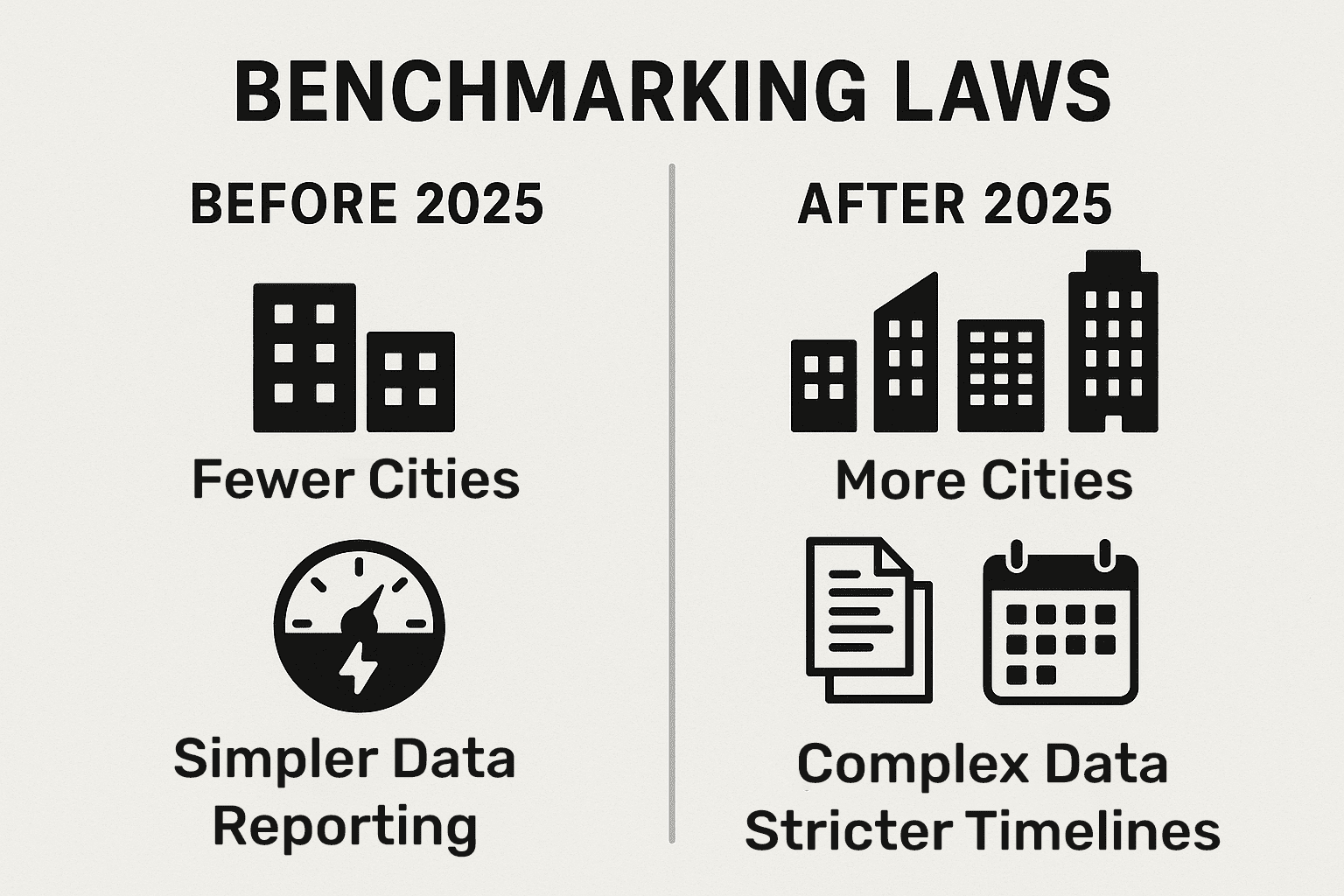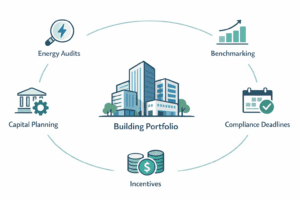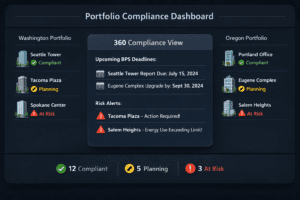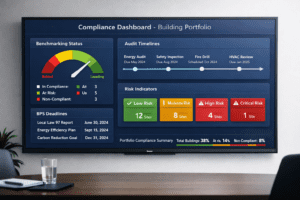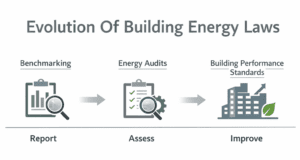New Benchmarking Laws in 2025: What’s Changed & Where
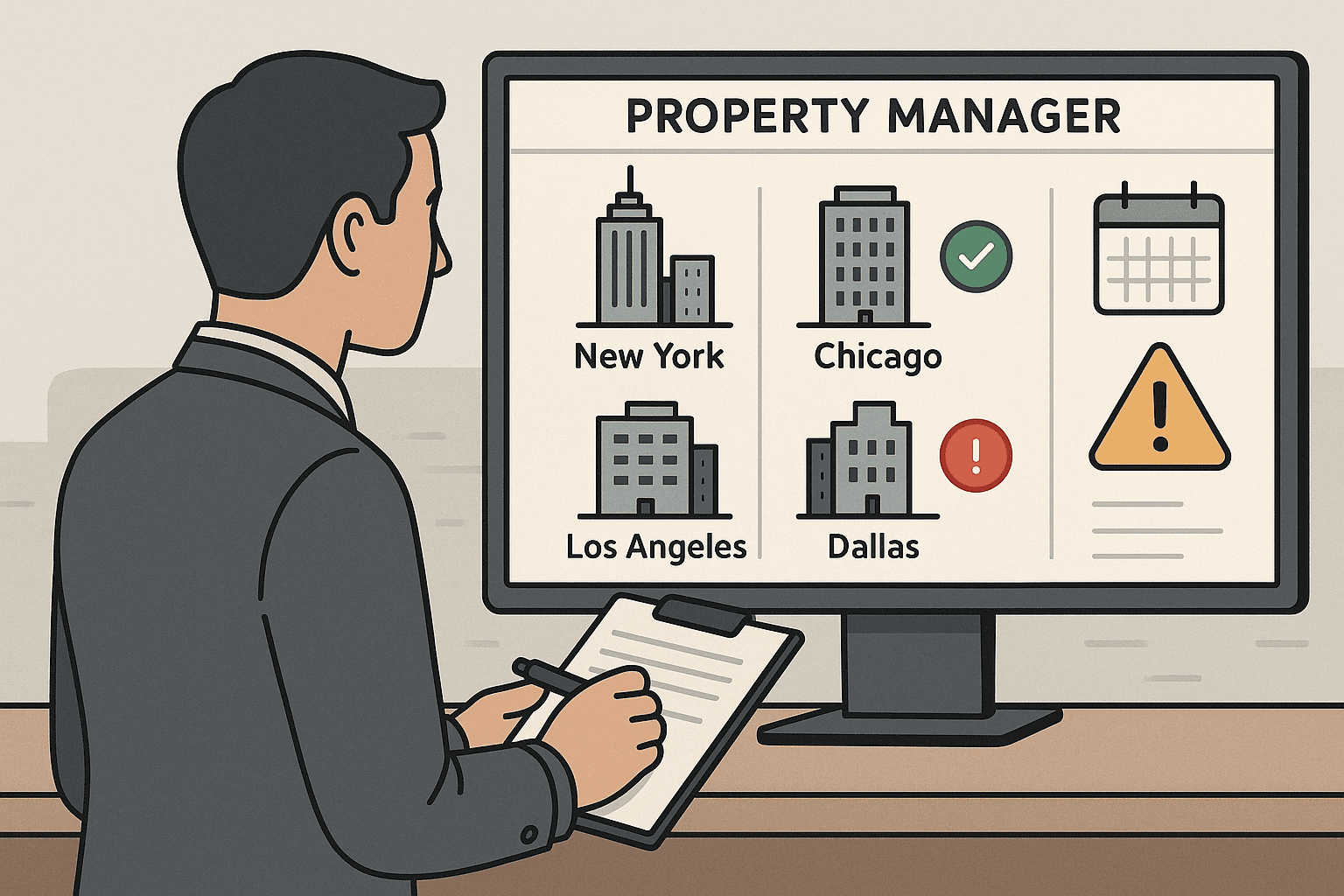
New benchmarking laws are changing how building owners track and report energy use across the United States. These updates are part of a national push to improve building performance so they reduce energy waste. If you own or manage commercial properties, it’s important to understand what has changed and where. Some cities have added new rules, while others have changed deadlines or increased requirements.
These benchmarking laws require building owners to measure how much energy their buildings use and report that data to city or state agencies. The goal is to make energy use more transparent and help cities meet climate goals.
What Changed in 2025
2025 brings several major changes to energy benchmarking rules:
More cities are joining:
Places like Los Angeles, San Francisco, New York, Washington D.C., and Denver have updated or expanded their local benchmarking ordinances.
Stricter rules for some buildings:
Smaller buildings or different property types may now be included in reporting.
Tighter deadlines:
Many cities have moved up their deadlines or shortened grace periods for reporting.
New building data requirements:
Cities are asking for more detailed building information, such as square footage types, HVAC system data, and occupancy levels.
If you’re asking, “Which buildings must comply with updated energy laws?” the answer may now include buildings that were previously exempt.
Cities with New or Updated Rules
Here are key local markets with updated or changed benchmarking rules:
Los Angeles
Los Angeles has expanded its Existing Buildings Energy and Water Efficiency (EBEWE) program. More properties are now required to report, including smaller commercial buildings over 10,000 square feet. The city has also launched a new online portal for easier data submission.
San Francisco
San Francisco has added greenhouse gas emission reporting to its Existing Commercial Buildings Ordinance. Building owners must now submit both energy and emissions data.
New York City
NYC has introduced new benchmarking requirements under Local Law 97. These rules affect building emissions limits and require energy audits for certain buildings starting this year.
Washington, D.C.
The District has shortened compliance windows for its Building Energy Performance Standards (BEPS). Buildings must now report on tighter timelines, and failure to comply may result in penalties.
Denver
Denver’s Energize Denver program now includes new building performance updates in 2025. New property types have been added, and the city has increased enforcement efforts.
Why These Changes Matter
Energy benchmarking helps city officials, building owners, and the public understand how efficiently buildings use energy. When laws change, they often affect:
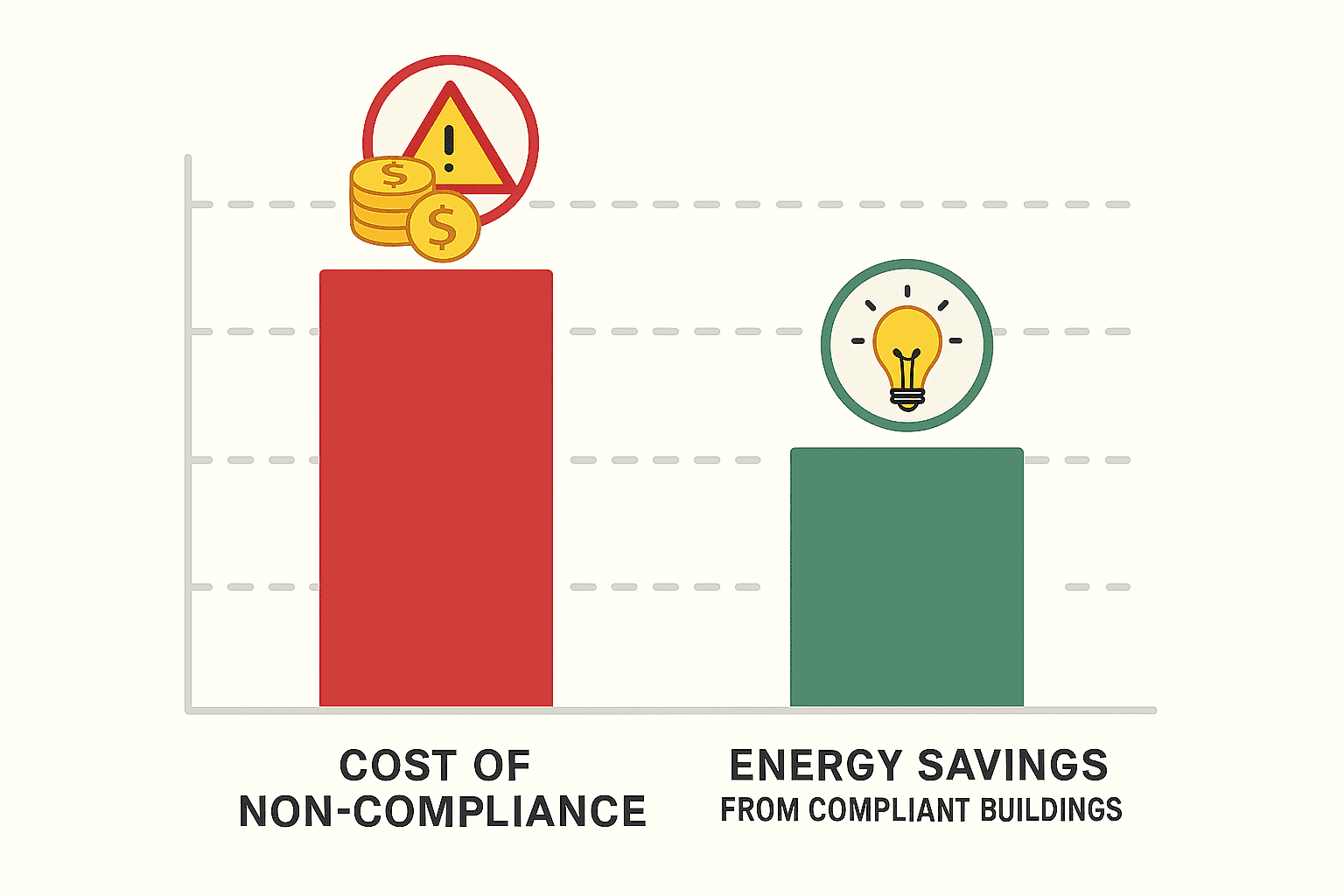
- Operational costs: Better energy tracking can lead to lower bills.
- Compliance risks: Missing a deadline or submitting incorrect data can lead to fines.
- Asset value: Properties with good energy performance often have higher value and better tenant retention.
If you’re managing a portfolio, you might be wondering, “How do recent benchmarking changes impact my portfolio?” The answer depends on where your buildings are located and how they perform today.
New Building Data Requirements
As part of these rule changes, cities are asking for more data. This means owners and managers must keep better records and provide more details.
Here’s what many cities now ask for:
- Building systems information: Type of heating, cooling, and lighting systems.
- Occupancy levels: How much of the building is used and when.
- Space types: Retail, office, residential, or mixed-use.
- Energy sources: Electric, gas, solar, or others.
This helps cities compare similar buildings and set realistic performance goals. It also gives owners a clearer picture of where to improve.
Who Must Report in 2025?
One of the most common questions this year is, “What cities introduced new benchmarking rules in 2025?” The map below highlights cities with new or updated rules:
Cities include:
- Los Angeles
- San Francisco
- New York City
- Washington, D.C.
- Denver
Don’t miss a new deadline, get help staying compliant.
What To Do Next
If you’re affected by these changes, here’s what you should do now:
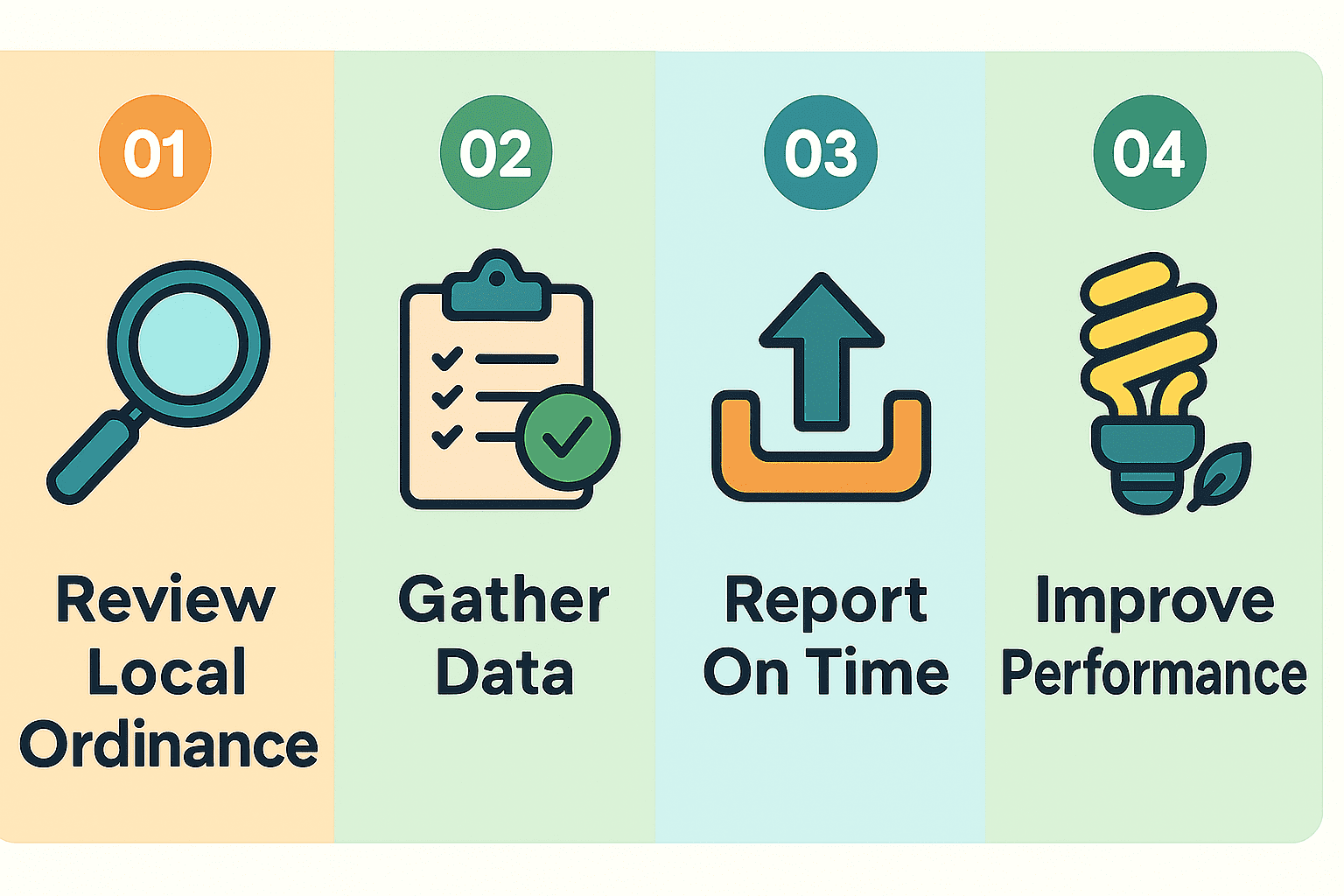
- Review your city’s ordinance: Look for changes in deadlines, building types, and data requirements.
- Gather your building data: Make sure it’s accurate and complete.
- Submit reports on time: Use your city’s preferred platform or portal.
- Improve building performance: Benchmarking is just the start. Use the data to find ways to cut energy use and save money.
Learn more about your benchmarking requirements and see what you need to do to get compliant by visiting our benchmarking solution today.


